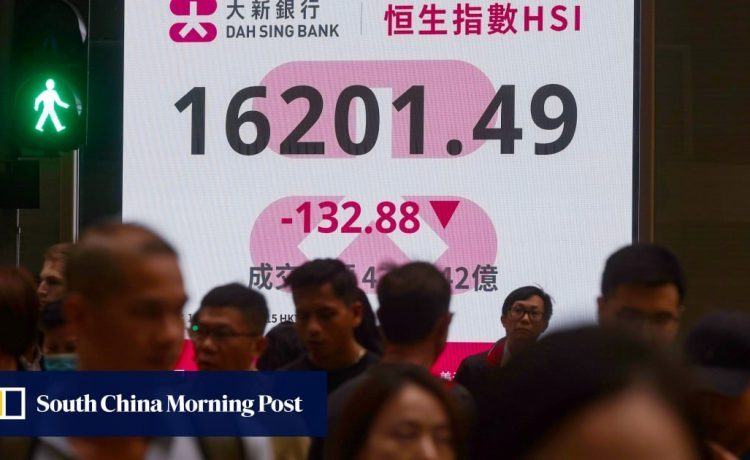
Social-media giant Tencent Holdings, insurer AIA Group and HSBC Holdings have spent the most on buy-backs this year, it said.
The benchmark gauge has dropped 17 per cent so far this year, and is trading at 5.5 times realised earnings as the cheapest major market globally, according to Bloomberg data. That has contributed to HK$656 billion being wiped off the value of the Hong Kong market in 2023.
Chinese sportswear maker Li Ning is the latest company to jump on the bandwagon. The firm, which was founded by the eponymous gymnastics world champion, said on Monday night that it would buy back its own shares for as much as HK$3 billion in the next six months.
Shares of Li Ning jumped 4.4 per cent on the news to HK$19.10, paring its year-to-date loss to 72 per cent. The stock is the worst performer on the Hang Seng Index in 2023.
WeChat operator Tencent has topped the repurchase rankings, splurging HK$41.8 billion on its stock, according to the Shanghai Securities News. It is followed by AIA on HK$26.8 billion and HSBC on HK$19.4 billion. Shares of Tencent have fallen 1.8 per cent this year and those of AIA have slumped 28 per cent, while HSBC’s stock has risen 25 per cent.
Official data over the weekend showed that both consumer and producer prices in China fell in November, suggesting mounting deflationary pressure. Data due on Friday may show growth of industrial production and retail sales picked up, according to the consensus estimate of economists tracked by Bloomberg.
“There’s been no big change in China’s economic fundamentals, and the magnitude of supportive policies has fallen short of market expectations,” Essence Securities said in a note on Tuesday. “The decline in the Hong Kong market reflects the pretty weak risk appetite. The market is still in the process of finding the bottom.”







